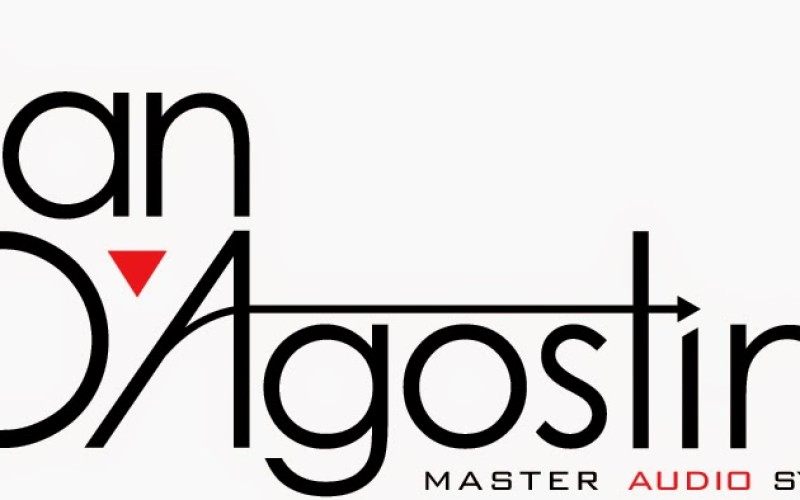MLife
D’Agostino LLC, the company founded by famed audio designer Dan D’Agostino, is launching MLife, a new integrated amplifier that adds the convenience of mainstream wireless audio products to D’Agostino’s acclaimed Momentum amplifier design.
MLife uses the same amplifier circuits as the Momentum integrated amp, but replaces the tone controls with a 5-inch color LCD display. This display and an accompanying iOS and Android app allow consumers to stream music losslessly through Apple AirPlay; browse thousands of online radio stations through built-in vTuner Internet radio capability; access Tidal high-fidelity music streaming; and connect to smartphones, tablets and computers wireless through Airplay and aptX Bluetooth 4.0.
“In the high-end audio industry, we often say if you want something that’s convenient and easy to use, get a mainstream product. With MLife, we’re delivering all the convenience and user-friendliness of those products, with sound quality that is unmatched by anything else on the market,” D’Agostino founder and chief engineer Dan D’Agostino said.
MLife uses the exact same amplifier and preamplifier circuits as the Momentum integrated amp, except that the integrated amp’s tone controls have been replaced with a wired/wireless network interface. The network capability allows access to a practically unlimited amount of music and other audio content:
Apple AirPlay: MLife can access any music and Internet radio programs available through iTunes, and control the streaming through iOS devices such as iPhones and iPads, and through Mac and Windows computers running iTunes.
aptX Bluetooth 4.0: Anything you can listen to through a smartphone, tablet or computer can be streamed directly to MLife through Bluetooth wireless. Because MLife features aptX and Bluetooth 4.0, it delivers the best Bluetooth sound possible.
Tidal: MLife can stream music directly from Tidal, the new Internet streaming service that uses lossless audio compression to deliver uncompromised sound quality.
UPnP: For those who wish to stream directly from networked servers and computers, MLife offers UPnP compatibility.
USB drives and sticks: MLife can play music from USB drives and sticks connected to its USB input. The 5-inch LCD screen shows album/artist/genre/song title information, making it easy to find the music you want in seconds.
USB/optical/coaxial digital inputs: These inputs feed MLife’s 24-bit/192-kilohertz digital-to-analog converter, allowing playback directly from computers, CD drives and other digital audio sources. vTuner Internet radio: Through MLife’s app and 5-inch LCD screen, you can access tens of thousands of different Internet radio stations from all around the world.
XLR analog input: An analog XLR input allows connection of phono stages, tape decks and other analog sources.
More services coming: After the initial launch of MLife, D’Agostino plans to add additional streaming services such as Spotify, Deezer and Sirius XM.
All of these services can be controlled through a custom app for iOS and Android smartphones and tablets. Metadata is displayed on the 5-inch front LCD screen, along with other operating parameters such as volume and selected input. Supported file formats include DSD; WAV, FLAC and PCM up to 24/192 resolution; AAC, AIFF, MP3, Ogg Vorbis and WMA.
The MLife amplifier section is identical to the one found in the Momentum integrated amplifier, delivering 200 watts per channel into 8 ohms, 400 watts into 4 ohms and 800 watts into 2 ohms. As in the integrated amp, a chassis machined from solid aluminum billet isolates the audio circuitry from electromagnetic interference. For maximum audio performance, the power supply resides in its own separate machined aluminum enclosure. All analog audio circuit boards are built using through-hole construction to ensure reliable operation and the best possible sound quality.
MLife will be priced at $48,000 and will be available March 2015. It will be demonstrated with other D’Agostino products, including the new Cinema Standard multichannel amplifier, at CES Venetian Suite 29-224 in Las Vegas, January 6 to 9, 2015.
Cinema Standard
D’Agostino LLC, the company founded by famed audio designer Dan D’Agostino, today announced the Cinema Standard, a new multichannel amplifier designed for use in home theaters and stereo systems. Available in two- and three-channel versions, the Cinema Standard delivers the performance and sound quality of D’Agostino’s Momentum amplifiers in a rack-mountable chassis practical for use in home theaters and custom installations. It also offers innovative features that allow it to deliver optimum sound in many different applications.
Each channel of the Cinema Standard delivers 250 watts into 8 ohms, doubling to 500 watts into 4 ohms and again to 1,000 watts into 2 ohms. These power ratings are taken at 0.1% total harmonic distortion, instead of the more forgiving 0.5% or 1% THD standards most manufacturers use. Any two adjacent channels can be bridged to double the output power.
The Cinema Standard is available in two- and three-channel versions. Both are built into a 6U chassis with front and rear rack-mounting brackets. Through the use of large heat sinks and carefully designed airflow paths, the Cinema Standard runs cool and reliably without the need for cooling fans.
Built-in, switchable high-pass and low-pass filters allow the Cinema Standard to be optimized for use with powered or passive subwoofers. The filters are preset to 80 Hz and -18 dB/octave, so they can be used to filter the bass out of a system’s main speakers, or to filter midrange and high frequencies out of a subwoofer. This feature makes it much easier to achieve a perfect blend between the main speakers and the subwoofer in a 2.1-channel stereo system, and it’s currently offered in no other high-end amplifier.
XLR inputs are provided for each channel, and a single input can be bussed to feed one, two or three amplifier channels. An RS-232 interface allows external control of the amplifier, and also provides a continuous report of the amplifier’s status. Through a home automation system or a direct computer connection, it can alert the owner or dealer to such conditions as overheating or overload (short circuit). A remote trigger jack also allows on/off triggering from surround processors and home automation systems with remote trigger outputs.
“The Cinema Standard is something new: an amplifier that brings the smoothness and ease of audiophile components to home theater and custom installation applications,” D’Agostino LLC founder and chief engineer Dan D’Agostino said. “The circuit design is adapted directly from the one I used in the Momentum amplifiers, so it’s very transparent and has plenty enough power for any situation. And the high-pass and low-pass filters will finally make it easy for audiophiles to add a subwoofer to their systems, so they can get deeper bass and better dynamics without sacrificing musicality.”
The Cinema Standard will be priced at $12,000 for the two-channel version, and $15,000 for the three-channel version. Both will be available in January 2015. $12,000 or $15,000 for the 2 and 3 channel option, respectively. The Cinema Standard will be on display with other D’Agostino products, including the new MLife integrated amplifier, at CES Venetian Suite 29-224 in Las Vegas, January 6 to 9, 2015.




